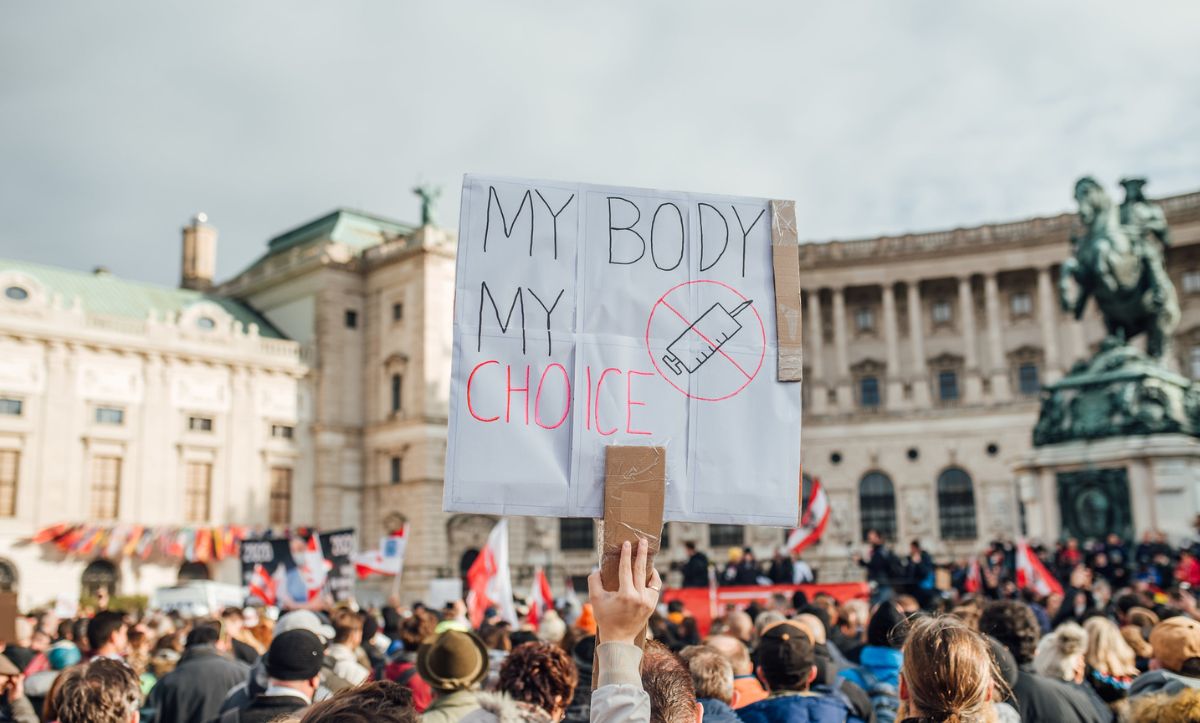Health
COVID Vaccine Mandates Hit by Shocking Turn of Events
A bombshell new study has flipped the script on COVID-19 vaccine mandates.

This article originally appeared on The Epoch Times and was republished with permission.
Guest post by Megan Redshaw
Some U.S. states mandated COVID-19 vaccinations during the pandemic to increase vaccination numbers. Yet recent research shows these governmental restrictions had unintended negative consequences and no influence on COVID-19 vaccine uptake.
A study in PNAS found that state-level COVID-19 vaccine mandates did not impact vaccine adoption during the weeks before or after the mandates went into effect, suggesting vaccine mandates did not directly affect COVID-19 vaccination.
Additionally, compared to states that banned vaccine mandates through legislation, states that required COVID-19 vaccination experienced lower levels of subsequent boosters and reduced rates of voluntary flu vaccinations.
“The theory of psychological reactance serves as one longstanding explanation for why freedom restrictions in the form of governmental mandates cause people to reject the advocated behavior or otherwise have unintended consequences,” the study authors wrote.
Mandates Had No Influence on COVID-19 Vaccination Rates
To determine the impact that state COVID-19 vaccine mandates had on vaccination behavior, researchers examined epidemiological data from the Centers for Disease Control and Prevention (CDC) in 19 states, eight weeks before and after a mandate was imposed.
They also examined the uptake of subsequent vaccines, such as COVID-19 boosters and seasonal influenza vaccines, to see if restricting the freedom to choose whether or not to be vaccinated in the past affected the adoption of future voluntary vaccinations.
To get a baseline on attitudes toward COVID-19 vaccine mandates, researchers used data from the COVID States Project—a 50-state survey project supported by the National Science Foundation before the COVID-19 vaccine was made available to the public.
A group of scientific researchers launched the COVID States Project in March 2020 to help practitioners and governments make informed decisions, identify links between social behaviors and virus transmission, and measure the impact that regulation and messaging have on individual and community outcomes in a crisis.
The study research suggests that people’s acceptance of vaccine mandates depends on how they feel about the behavior before restrictions are implemented.
As part of their analysis, the researchers examined people who were already vaccinated before the eight-week sampling time frame and found no statistically significant difference in weekly vaccination rates before and after the mandate was imposed, nor were vaccination rates affected by baseline attitudes toward COVID-19 vaccine mandates.
When adjusting the sampling window before and after mandates to four and 16 weeks, researchers observed the same trends, suggesting that COVID-19 vaccination requirements were not associated with changes in vaccine adoption rates.
Unintended Negative Consequences for Boosters and Flu Vaccines
Using CDC data from November 2021—when boosters became available—through May 2022, researchers examined weekly differences in state-level vaccination rates of COVID-19 boosters in 19 states with vaccine mandates and 22 states that enacted legislation banning vaccination requirements.
Additionally, they looked at those who received a booster and those who were eligible but did not, as well as how state vaccination rates were impacted by legislation banning or mandating vaccinations. The study found COVID-19 booster uptake was lower in states that imposed vaccine requirements—with a greater discrepancy among states with lower vaccination numbers.
-

 Health22 hours ago
Health22 hours agoDeleted Interview: Attorney Tom Renz on the Alex Jones Show
-

 News2 days ago
News2 days agoFBI Again Warns of Potential Terror Attack in US, “Not That Different” from Concert Attack in Russia
-

 News2 days ago
News2 days agoUS Births Alarmingly Slide to Lowest Level Since 1979, Failing to Exceed Replacement Rate
-

 Health1 day ago
Health1 day agoMedical Whistleblower Says COVID Jabs Caused Patients to “Die So Horrifically, So Quickly”




















